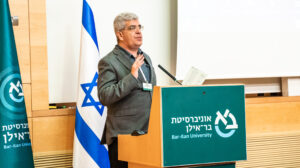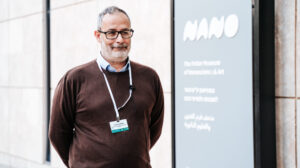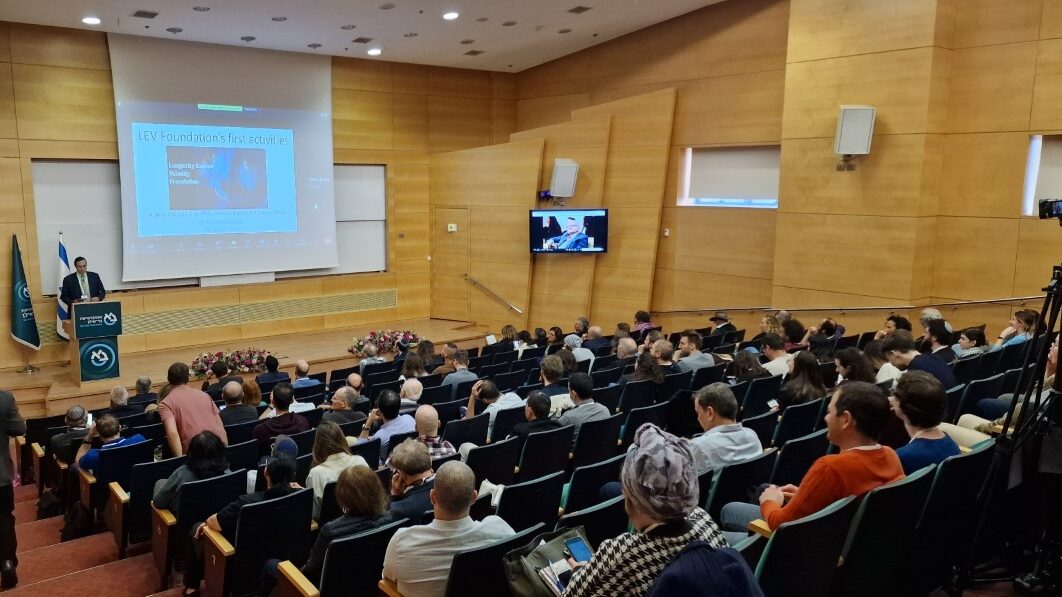Field of Longevity Explored at Groundbreaking Conference in Israel
Research on longevity has not yet reached the market, and experts warn that more focus on the field is needed to attract investments and the interest of decision-makers
May you live until 120, is one of the most common birthday wishes in Judaism. Even if it is not expressed in those exact words, most people wish to live healthy, long lives. But despite this prevailing transcultural desire, humanity has not spent enough time and effort on research into longevity.
“Aging is a hugely important topic that is not addressed nearly enough as it should be,” said Dr. Ilia Stambler, chief science officer at the Vetek Association – the Movement for Longevity and Quality of Life in Israel. “Considering its importance, it is unexposed, our life depends on it,” he told The Media Line.
The Vetek Association, together with Bar Ilan University and the Shlomo Tyran Foundation, held this week a first-of-its-kind international conference on the field called Longevity Nation, which culminated in the drafting of resolutions to advance the field of geroscience and longevity nationally and internationally. Among the resolutions: increasing resources, investments and education in the field, as well as establishing and improving evaluation measures for degenerative aging which will allow early detection and, therefore, prevention.

Dr. Ilia Stambler, chief science officer at the Vetek Association – the Movement for Longevity and Quality of Life in Israel. (Courtesy)
“The field is not supported enough, there is not enough interest,” said Stambler, adding that there are other topics that are perhaps less relevant to the human lifestyle that are in the forefront of the public agenda.
“The idea is that by intervention in aging we will be able to prevent aging-related diseases and in this way, extend longevity,” Stambler explained.
There currently are no products on the market that are specifically designed for this purpose, and there are no medical technologies on the market to prevent age-related diseases by intervention in aging processes, he added.
The purpose of the Longevity Nation conference was to push beyond this threshold, in order to bring existing and future research closer to the market, Stambler said.
The idea is that by intervention in aging we will be able to prevent aging-related diseases and in this way, extend longevity
For that to be achieved, the field needs more funding and more clinical trials to be implemented. Stambler noted that the research exists, but it is often the case that studies come to an end before reaching the market; several trials have been stopped simply due to of lack of funding.
Give the gift of hope
We practice what we preach:
accurate, fearless journalism. But we can't do it alone.
- On the ground in Gaza, Syria, Israel, Egypt, Pakistan, and more
- Our program trained more than 100 journalists
- Calling out fake news and reporting real facts
- On the ground in Gaza, Syria, Israel, Egypt, Pakistan, and more
- Our program trained more than 100 journalists
- Calling out fake news and reporting real facts
Join us.
Support The Media Line. Save democracy.


In addition, there are many issues that prevent the research from reaching the clinics where it can help actual patients, among them government regulation. In biotech these are called the ‘death valleys,’ which can be difficult to cross. That is why it is very important for aging to be recognized as a condition that can be treated, which will allow the approval of more longevity-related initiatives, according to Stambler.
The Longevity Nation conference also served as an international platform to connect researchers in the field from different places around the globe.
Dr. Roberto Pili, president of the World Community of Longevity based in Sardinia, Italy, told The Media Line that Israel can serve as a major hub for much-needed developments in the field of longevity.
“We are in a country that is an outstanding hub in terms of research, and we are willing to make our bio-psycho-social studies available to the advanced research that Israel is doing in nutrigenomics, happy-genomics, and especially with regard to the drugs that are being made in laboratories to promote long life,” he added.
Marco Tricomi, public relations and communication expert at the DNA Foundation of Barbagia di Seúlo in Sardinia, participated in the conference. The Italian island of Sardinia has become one of the most important hubs of research in longevity, in part due to the fact that, on average, people who live there live longer – Sardinia is home to the community with the longest living people on average in the world.
Tricomi told The Media Line that for years, through collaborations with the University of Sassari and the University of Cagliari, a whole series of synergies have been activated to identify those factors that make humans in Sardinia live longer.
He added that their participation in the Longevity Nation conference in Israel has allowed them to have an international platform. He notes that the DNA Foundation of Barbagia di Seúlo is the repository of the DNA of about 13,000 Sardinian residents, and this has allowed researchers to study an unprecedented number of genetic heritage samples.
Donatella Petretto, professor of clinical psychology at Cagliari University, told The Media Line that in addition to a focus on studying from a biopsychological point of view the so-called longevity communities, which are where people live longer than in the past, they are making efforts to scatter the collected information to the general population.
“We are aiming to study how to disseminate this information in the general population because we believe it is very important to create sort of a bridge between research and information in the general population. So, we aim to disseminate information about the pillars that promote aging and aging well,” she said.

Dr. Flavio Cabitza, president of the DNA Foundation of Barbagia di Seúlo. (Courtesy)
The president of the DNA Foundation, Dr. Flavio Cabitza, announced during the conference a collaboration agreement between Israel and Italy on the study of longevity, as well as an invitation to Israeli industry groups to access their data and further the cooperation.
Stambler, who notes that there are ongoing research projects on longevity in Israel such as mitochondrial replacement and tissue engineering, points out that issues of aging must be addressed holistically.
“There is no drug that we can swallow and then live longer; it will be a combined treatment that includes medical and biological treatments but also the social environment, motivation and lifestyle,” he explained.
We are in a transition period, there is a lot of research, but we need to make the push toward the clinic, toward the human application
He points to an Israeli initiative which created an IT platform for the longevity ecosystem in the country, to bring in and map all the field’s players, including industry, research, non-profits, policy and fintech.
“The idea is to boost the longevity ecosystem in Israel simply by knowing what is going on and being able to go to platform and see what entities exist, and what directions are present,” he added.
He reiterates that more attention on the subject is needed in order to increase support on a governmental level, as well as at the public and academic levels.
“If there is a general interest in the topic in the press, then also decision-makers become interested and support the field. We are in a transition period, there is a lot of research, but we need to make the push toward the clinic, toward the human application,” he said.

